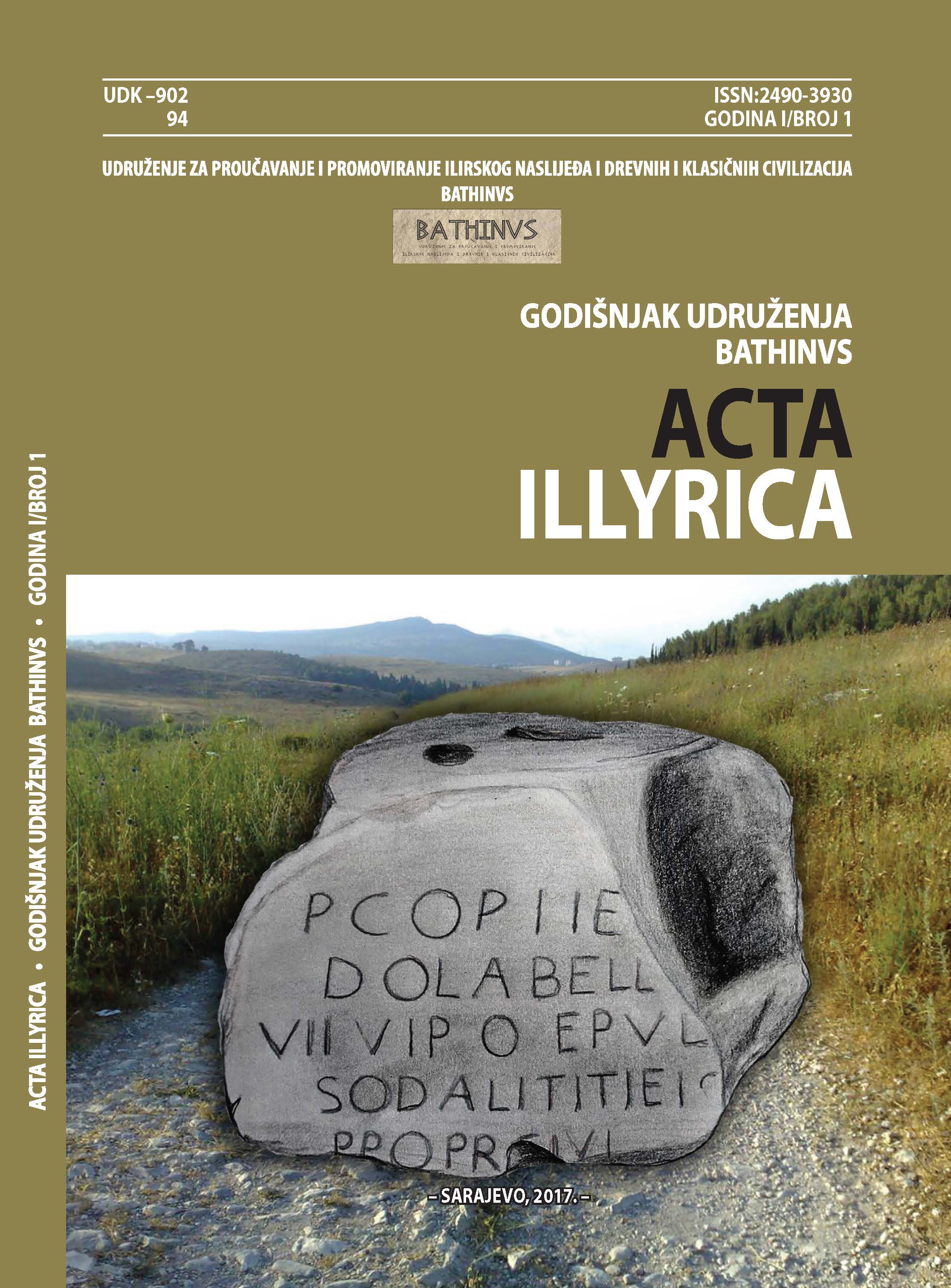The process of Romanisation in the inland of the Roman province of Dalmatia in the 1st century
The process of Romanisation in the inland of the Roman province of Dalmatia in the 1st century
Author(s): Amra SačićSubject(s): Cultural history, Political history, Social history, Ancient World
Published by: Udruženje za proučavanje i promoviranje ilirskog naslijeđa i drevnih i klasičnih civilizacija “BATHINVS”
Keywords: Romanisation; post-processualists; structuralists; traditionalists; Tacitus;province; Dalmatia; Publius Cornelius Dolabella; the Julio-Claudian dynasty; the Flavian dynasty; municipium; Diluntum;
Summary/Abstract: In contemporary Roman historiography and archaeology the process of Romanisation is studied from two opposite viewpoints. Post-processualists and structuralists usually define Romanisation as a construct of Mommsen’s school of thought, whereas traditionalists believe that the process of Romanisation is one of the evident cultural and political processes that marked the Roman civilisation. For traditionalists it represents a process of cultural transformation that helped indigenous communities to integrate into the Roman Empire. Perhaps the best solution to this problem was offered by Curchin who believes that instead of giving up on the term Romanisation it’s better to deconstruct this term and revise it as a useful descriptor of an important cultural process in the Roman world. The inland of the Roman province of Dalmatia can serve as an exact example of the methodological analysis of the aforementioned historiographical problem. Although the 1st century in Dalmatia was marked by construction undertakings of Publius Cornelius Dolabella, the basic parameters of Romanisation in the inland can be observed not until under the Flavian dynasty. This is the period of first municipia in the inland: municipium Bist(uensium), municipium Malvesiatum, municipium Raetinum, municipium Arupium, municipium Doclea. We observe that local, pre-Roman aristocracy continues to reign in these municipia as part of the Roman administrative machinery. Therefore, even with Roman citizenship, indigenous elite did not renounce their pre-Roman identity. This can be inferred from epigraphic monuments of decuriones from the abovementioned municipia who, although being granted Roman citizenship, retained onomastic elements of Western Balkans (Illyrian) origin within their nomenclature (Bato, Blodus, Tatta, Epicadus,Laedio , Aplius and Annia). Local aristocracy evidently played a key role in spreading the Roman political power, because it took over the role of military prefects under the Julio-Claudian dynasty.
Journal: Godišnjak Udruženja BATHINVS “Acta Illyrica”
- Issue Year: I/2017
- Issue No: 1
- Page Range: 78-89
- Page Count: 12
- Language: English

